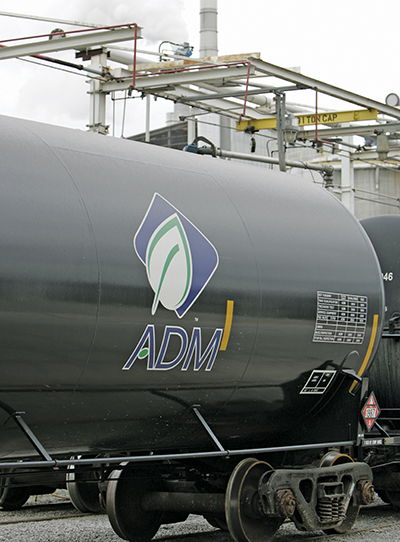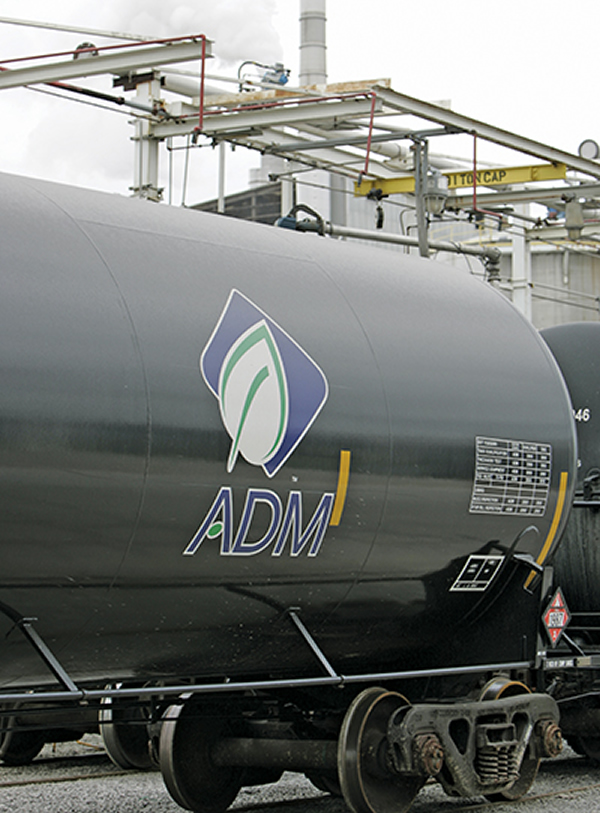
Kemin Industries in January formed a new Kemin subsidiary in Russia: Kemin Industries (Lipetsk) LLC. Kemin will operate in the Special Economic Zone of Lipetsk. This development is 15 km. (9.3 miles) outside the town of Lipetsk and 438 km. (272 miles) southeast of Moscow. The company’s plan is to build a facility with manufacturing, administration offices, lunch room, quality lab security building and warehouses.
The investment is one of many made since Kemin shared its five-year expansion plan setting forth strategic investments for its operations in Brazil, Russia, India, China, South Africa and the United States. In the US, Kemin is headquartered in Des Moines, Iowa, and is a founding stakeholder of Iowa’s Cultivation Corridor.
“As aggressive as we are on making these investments, the world’s population growth is equally aggressive,” said Dr. Chris Nelson, CEO of Kemin. “In our 50-plus years of business, the need to provide high quality animal protein nutrition has never been greater. We must keep investing, innovating and growing to provide ingredients that improve the health and well-being of people and animals around the world.”
Construction of the new facility near Lipetsk is scheduled to begin in 2016 and be completed by spring 2017. Once construction is complete, Kemin will have the capacity to manufacture specialty feed ingredients including additional space to add new lines of manufacturing and different classes of solutions in the future.
Kemin, which conducts business in 90 countries, already has regional headquarters in Europe, and has been selling feed ingredients in Russia for 20 years. In 2014, the company opened a fully equipped customer service laboratory in Moscow to better serve the feed industry and its growing customer base.
“Russia is one of the largest animal feed markets in Europe, producing 25 million tons of feed last year,” explained John Springate, senior vice president, technology acquisition. “Localizing manufacturing will reduce order to delivery time for Kemin customers, ensure local availability of high-quality feed ingredients, reduce supply chain risks due to transportation, and increase collaboration between our scientists and those we serve, which will likely result in new products tailored for the Russian market.”
Iowa Expansions
In June 2015, Kemin Industries further deepened its roots in Iowa while continuing its strategic growth in global trade and supporting regional economic development. A ceremonial groundbreaking for its new Des Moines corporate headquarters included a footprint of the more-than-90,000-sq.-ft. (8,360-sq.-m.) building with hundreds of Kemin employees inside their future office spaces.
The company has steadily marched forward with its growth plans after an event in October 2010, during one of the worst economic recessions in history; when publicly announcing a $40-million expansion plan that would add new jobs, multiple manufacturing and research facilities and a new global headquarters.
Then, in September 2014, Kemin increased the total expansion investment to $125.5 million, more than tripling the initial investment to support its focus on providing safe and healthy food to a growing world.
“We are in a race with the global population growth to find molecular solutions which help improve the lives of others through molecular science that helps feed the world,” said Dr. Nelson. “As lofty as our goals are and as technically complex our research and related science is, our success comes down to relationship — starting here at home. We could not have made this commitment without the help of the City of Des Moines, Polk County, the State of Iowa, and of course, our employees”
“Every time I visit Kemin, I am reminded that this is a global company and can choose to have their corporate headquarters anywhere in the world — and they continue to choose Iowa,” said Gov. Terry Branstad. “Kemin is a family-owned company with a culture of innovation, setting ambitious goals and exceeding expectations. Specifically, a couple of years ago they committed to adding 98 jobs. Instead, they went well beyond that by adding approximately 140 full-time jobs, and I am pleased to learn that they are looking to hire even more.”
The new building is designed as an expansion that will connect the recently opened Molecular Advancement Center (MAC) on the northeast side of the campus to the new headquarters. The headquarters will house nearly 350 employees along with a fitness center and dining facility.
Recent Kemin Des Moines projects include:
- 23,000 sq.-ft. (2,100-sq.-m.) warehouse completed in 2012;
- 45,000 sq.-ft. (4,180-sq.-m.), $16.7-million Molecular Advancement Center research facility that opened in July 2013;
- 16,000 sq.-ft. (1,486-sq.-m.), $17-million encapsulated manufacturing facility; and the corporate headquarters to be completed in early 2017. Combined with the MAC, the new building will be approximately 125,000 sq. ft. (11,600 sq. m.).
ADM To Develop a New Ethanol Hub in Selma, North Carolina
Archer Daniels Midland Company on December 21st announced an agreement with Kinder Morgan, Inc. and Bailey Feed Mill to construct a new unit train rail facility and ethanol offloading system in Selma, N.C.

KMI will invest in and construct the new facilities, which will be located at the Bailey Feed Mill and will have the ability to offload up to 96-railcar-long unit trains in a 24-hour period. KMI will also build a new pipeline, approximately 2.6 miles in length, to connect the unit train offload system to their vast tank farm in Selma, allowing ethanol to be distributed to blending terminals in Selma and the surrounding markets.
“This project will help us improve the efficiency of our ethanol delivery in this market with added unload capacity, quick-turn time on railcars and a pipeline connection to tankage,” said Craig Willis, president of ethanol for ADM. “And by working with KMI and Bailey Feed Mill on this project, we will achieve the benefits in a cost- and capital-efficient manner. ADM has been a long-time supplier in this market, and we are excited to work with KMI and Bailey Feed Mill to bring a more flexible, reliable and efficient solution to customers in the Selma area.”
ADM and KMI anticipate having inter-terminal connections in service as early as the third quarter of 2016, with the remainder of the project expected to be complete by the end of 2016.
“We are pleased to work with ADM and Bailey Feed Mill on this transportation solution for ethanol deliveries,” said David Halphen, vice president of business development for KMI’s Products Pipelines. “This project will reduce the ethanol delivery carbon footprint through a more efficient use of rail capacity and pipeline transportation.”

